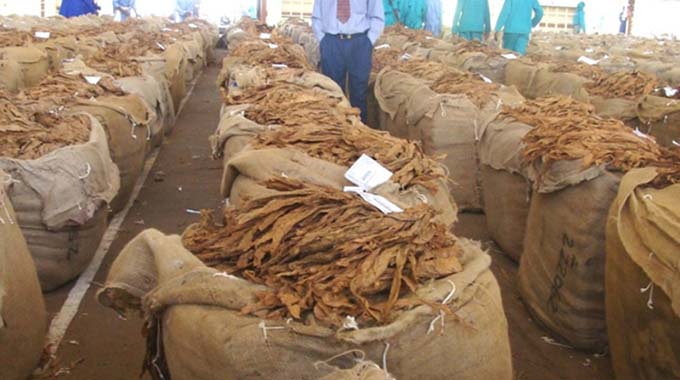Editorial Comment: Contract farming can transform agro-business

Tobacco is not just Zimbabwe’s largest single agricultural export and the main cash crop of tens of thousands of Zimbabwean farming families, it is also the best organised agro-industry, has developed systems that allow both farmers and buyers to flourish, conducts its own research, arbitrates its own disputes and, critically, does all this without any input from the taxpayer.
And tobacco has managed a transition from a small pool of around 2 000 commercial growers to tens of thousands of growers, most of whom are small-scale farmers, some planting as little as half a hectare.
Yet those farmers, in aggregate, have set new production records in both the 2018 and 2019 selling seasons.
At the core of the present industry is the contract system, where 22 private companies contract with registered tobacco growers for each to grow an agreed hectarage, provide the inputs and buy the cured crop at a price that is calculated by an independently set formula from the open market auction price.
Payment is almost instant after sales with no long delays.
Side-marketing, the curse of so many other crops and what has slowed the development and growth of private financing for those crops, is almost unheard of with both market forces and some rather tough regulation preventing this evil.
On the other hand, cheating contractors can be brought to account almost instantly themselves, losing not just their farmers to other and more honest contractors, but also their licence to do business since to cheat they have to break the pricing formula and the law.
For many farmers, the contractor is more than a source of inputs. Most contractors go a lot further, ensuring that they have a pool of expert staff who actually visit their farmers during the growing and curing season, check the condition of the crops, offer advice and arrange for the right chemicals in the right quantities to be delivered when needed.
Land reform turned contract tobacco farming from a trivial sideline, and only allowed from 1994, into the mainstay of the industry, especially after the disastrous slump in output when the old system of around 2 000 major commercial growers supplying almost all the crop became unviable.
That saw the tobacco crop slumping by almost 80 percent by 2008 before the tobacco companies got their act together, took a deep breath and started building the lists of competent and honest contract farmers that are now their greatest single asset.
For the vast majority of growers, contract farming is the only option. They have neither the savings required, nor the standing to approach a bank for loans directly, nor the collateral to support a loan even if a bank could somehow visit a few thousand small-scale farmers and make a personal estimate of their ability to repay the loan.
This is not to say that there are no complaints. Being at the mercy of the weather and the markets, farmers are by nature suspicious and vaguely pessimistic.
Even in a perfect season with record prices they will “complain good-naturedly just to keep in practice”, as the old joke goes, but it works. And the lessons it has generated could be applied to other crops.
At the heart is a system that ensures some astonishingly tight regulation, especially in an industry that seems so totally reliant on market forces for pricing, on the private sector for financing, and on global markets for buyers.
At the core are two bodies set up by Acts of Parliament, the Tobacco Industry and Marketing Board, the regulator and licensing authority, and the Tobacco Research Board, the technical side that has to approve every variety of seed and every chemical used on every single plant, plus sets the planting period and the date for destruction of plants to avoid disease.
Both are funded by the industry, farmers, contractors and merchants, giving them both the independence they need and ensuring that they deliver what all sectors want.
The TIMB oversees the system. Every grower, or potential grower, has to be registered every year, for a trivial fee if they fill the form in on time. It is in fact a criminal offence to grow tobacco if you are not registered.
Buyers and auction floors are also registered, as are, most importantly, the contractors. And every single farmer, buyer, floor and contractor has to provide accurate statistics by given deadlines.
The TIMB only wants genuine farmers and buyers, so farmers have to provide details of title deeds, A1 and A2 offer letters, or an official letter from a communal lands authority. Plus the local Agritex officer has to certify that farmer and land physically exist.
Merchants and contractors are directly checked out by the board. So one major source of dishonesty is eliminated from the start. The TIMB sets the rules and formulas, after negotiation with a plethora of associations, the Reserve Bank of Zimbabwe and the Government. And it arbitrates disputes.
Licensed contractors and licensed farmers set their contracts, within the rules, which is where contractors need to know their client farmers rather well, since the main collateral, often the only collateral, is the crop being planted, grown and cured.
This forced merchants to become far more involved in their industry, rather than just sauntering down to the floors once a year. So contractors have built up lists of farmers they trust, through track record, inspection or recommendation from trusted neighbours.
And the trust works in both directions. A contractor who does not deliver their side of the bargain perfectly will find their best farmers growing a crop for one of the other 22 next year.
The result is the most flourishing of all agricultural sectors, that pumps cash into rural economies and with the switch following land reform spreads that cash around, and pays for a decent percentage of Zimbabwe’s imports.
The combination of private sector financing, production and marketing policed by tight independent, but State-enforced regulation, with rules and systems that eliminate cheating right down the line, is a model that can be emulated in other areas.











Comments